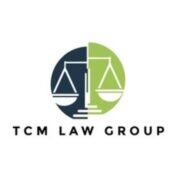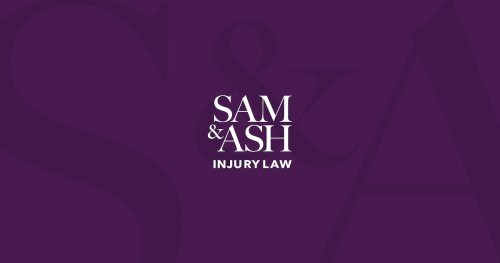Best Toxic Tort Lawyers in Las Vegas
Share your needs with us, get contacted by law firms.
Free. Takes 2 min.
List of the best lawyers in Las Vegas, United States
About Toxic Tort Law in Las Vegas, United States
Toxic tort law covers civil claims that arise when people are harmed by exposure to hazardous substances. In Las Vegas, Nevada, toxic torts can involve exposure to asbestos, lead, mold, benzene, industrial chemicals, pesticides, contaminated groundwater, petroleum products, or newer contaminants such as PFAS. These cases commonly allege that a business, manufacturer, property owner, employer, or other party knew or should have known about a dangerous substance and failed to prevent exposure or warn people of the risk.
Toxic tort claims can be complex because they require proof of exposure, medical causation, and often long latency periods between exposure and onset of illness. Plaintiffs typically rely on multiple experts - medical doctors, toxicologists, industrial hygienists, and epidemiologists - to establish that the exposure caused the injury. Cases may be pursued individually, as mass torts, or as part of class actions or federal multidistrict litigation, depending on the facts and the number of people affected.
Why You May Need a Lawyer
Toxic torts raise legal and scientific issues that are difficult for non-experts to handle on their own. You may need a lawyer if you are in any of these common situations:
- You have been diagnosed with an illness that could be linked to chemical, biological, or environmental exposure and you believe the exposure occurred at work, at home, or in your neighborhood.
- You work in an industry with known toxic exposures such as construction, manufacturing, mining, or hospitality where asbestos, lead, or other hazards were present.
- You were a tenant, homeowner, or building occupant exposed to mold, lead paint, or other contaminants due to negligent maintenance or renovation.
- A product you used contained a harmful chemical and failed to warn you about its risks.
- Your drinking water, soil, or air was contaminated by nearby industrial operations, waste disposal, or firefighting foam.
- You want to understand whether you can pursue compensation while also protecting your health, preserving evidence, and complying with procedural deadlines.
A lawyer experienced in toxic torts can evaluate exposure evidence, secure medical and scientific experts, preserve crucial documents and samples, identify liable parties, navigate complex procedural rules, and negotiate or litigate to pursue fair compensation for medical expenses, lost income, pain and suffering, and other damages.
Local Laws Overview
Several local and state rules and procedures are particularly relevant to toxic tort claims in Las Vegas and Nevada more broadly:
- Statute of limitations - For most personal injury and wrongful death claims, Nevada generally has a relatively short statute of limitations. Many toxic torts involve long latency periods, so the discovery rule - which can delay the start of the limitations period until the plaintiff knew or reasonably should have known about the injury - often plays a critical role. There are special rules and exceptions depending on the claim and the parties involved.
- Workers' compensation and third-party claims - If exposure happened at work, workers' compensation may provide benefits. Workers' compensation is often the exclusive remedy against an employer for work-related injuries, but employees may also be able to sue third parties who caused the exposure. In some cases, claims against non-employer defendants or claims based on intentional or grossly negligent conduct may proceed outside the workers' compensation system.
- Causation and admissibility of expert evidence - Nevada courts apply rules that require reliable expert testimony to establish causation in toxic tort cases. That means plaintiffs must retain qualified experts in toxicology, occupational medicine, epidemiology, and industrial hygiene to connect exposure to disease in a manner that meets court standards for admissibility.
- Comparative fault and damage apportionment - Nevada applies principles of fault allocation in civil cases. A defendant may try to argue that the plaintiff's own actions or preexisting conditions contributed to the harm. Damages are typically reduced by the plaintiff's proportionate fault when applicable.
- Product liability and failure to warn - Nevada law recognizes product liability claims, including strict liability and negligence theories. A claim that a manufacturer failed to warn about a toxic chemical must show that adequate warnings would have prevented the harm and that the seller or manufacturer knew or should have known of the hazard.
- Government entities and immunity - Suing local, state, or federal government entities raises special rules and shorter notice periods. Nevada law grants limited immunities to government entities and employees, and there are specific administrative notice and claim-filing requirements to pursue claims against public bodies. Federal entities have their own immunities and waiver schemes.
- Environmental and administrative enforcement - Many exposure incidents are also addressed by environmental or public health agencies at the county, state, or federal level. Those remedies and investigations can generate evidence and influence civil claims, but administrative processes are separate from private lawsuits.
Frequently Asked Questions
What exactly is a toxic tort?
A toxic tort is a civil lawsuit seeking compensation for injuries caused by exposure to a toxic substance. It can arise from occupational exposure, consumer products, environmental contamination, or negligent property management.
How long do I have to file a toxic tort claim in Las Vegas?
Statutes of limitation vary by claim type. Many personal injury and wrongful death claims in Nevada have short limitation periods, commonly around two years, but exceptions and the discovery rule can extend deadlines. Because timelines can be complicated and critical, you should consult a lawyer promptly.
How do I prove that an exposure caused my illness?
Proving causation typically requires medical records and expert testimony linking exposure to your illness. Experts in medicine, toxicology, and industrial hygiene analyze exposure history, dose, timing, clinical diagnosis, and scientific literature to support causation.
Can I sue my employer for toxic exposure?
Often, workplace toxic exposures are handled by the workers' compensation system, which provides benefits but generally limits lawsuits against employers. You may be able to sue third parties who caused exposure. In certain cases involving intentional wrongdoing or willful misconduct, other legal remedies may exist.
Who can be held liable in a toxic tort case?
Potential defendants include product manufacturers, chemical distributors, property owners or managers, contractors, employers, waste haulers, and government entities. Liability depends on control over the hazardous substance, knowledge of the risk, and the legal theory pursued.
What kinds of damages can I recover?
You may recover economic damages like past and future medical expenses, lost wages, and lost earning capacity. Non-economic damages such as pain and suffering and loss of enjoyment of life may also be available. In rare cases, punitive damages may be sought for particularly egregious conduct.
Are class actions or mass torts common for toxic exposure cases?
Yes. When many people are affected by a single source of contamination or a widely used defective product, cases may proceed as class actions, mass torts, or be coordinated in multidistrict litigation in federal court. These procedures can streamline discovery and settlement but do not always fit every exposure case.
How long does a toxic tort case take to resolve?
Duration varies widely. Some cases settle within months after investigations; others take several years if complex discovery, extensive expert work, or trials are required. Latency between exposure and diagnosis can also delay the start of litigation.
What should I do right away if I think I were exposed to a toxic substance?
Seek medical attention and follow medical advice. Document the exposure with photographs, dates, locations, witness names, and any communications. Preserve relevant records such as employment files, product packaging, repair or maintenance records, and medical reports. Contact a lawyer experienced in toxic torts early to protect evidence and meet filing deadlines.
What happens if the responsible company goes bankrupt?
Bankruptcy can complicate recovery from solvent corporate defendants. In some cases, victims can file claims in bankruptcy proceedings or pursue other responsible parties. A knowledgeable attorney can evaluate options and possible compensation sources, including insurance or settlement trusts that may be created in bankruptcy cases.
Additional Resources
Below are government agencies, professional organizations, and local bodies that can be useful when researching exposure, reporting contamination, or seeking legal referrals:
- Nevada Division of Environmental Protection
- Nevada Division of Industrial Relations and Nevada Occupational Safety and Health (NVOSHA)
- Clark County Health District and Clark County Department of Air Quality
- United States Environmental Protection Agency - regional offices and resources on contamination and cleanup
- Centers for Disease Control and Prevention and Agency for Toxic Substances and Disease Registry for health information on hazardous substances
- State Bar of Nevada - lawyer referral service and consumer information about hiring an attorney
- Nevada Justice Association or local trial lawyer associations for attorney directories
- Legal Aid and pro bono legal services in Nevada for low-income claimants
Next Steps
If you believe you have been harmed by toxic exposure in Las Vegas, this guidance will help you move forward:
- Get immediate medical care and make sure your condition is documented. Keep copies of all medical records and test results.
- Preserve evidence - photographs of the site, product labels or containers, work and maintenance records, and any correspondence about the exposure.
- Write down a timeline of events - when exposure began, symptoms, relevant jobs or locations, and any witnesses.
- Contact a lawyer who specializes in toxic torts for a case evaluation. Many firms offer free consultations and contingency-fee arrangements where legal fees are paid only if you recover compensation.
- If exposure occurred at work, notify your employer and file any required workers' compensation claims promptly while consulting an attorney about third-party claims.
- Do not sign releases, accept low settlement offers, or give recorded statements without speaking to an attorney first.
- Consider contacting appropriate regulatory agencies to report ongoing hazards. Agency reports and inspections can create documentation that supports a legal claim.
- Keep track of deadlines. Statutes of limitation and notice requirements are time-sensitive and vary by claim and defendant.
Working with an experienced toxic tort lawyer will help you understand your legal options, gather the scientific proof you need, and pursue the best available route to recover compensation while protecting your health and rights.
Lawzana helps you find the best lawyers and law firms in Las Vegas through a curated and pre-screened list of qualified legal professionals. Our platform offers rankings and detailed profiles of attorneys and law firms, allowing you to compare based on practice areas, including Toxic Tort, experience, and client feedback.
Each profile includes a description of the firm's areas of practice, client reviews, team members and partners, year of establishment, spoken languages, office locations, contact information, social media presence, and any published articles or resources. Most firms on our platform speak English and are experienced in both local and international legal matters.
Get a quote from top-rated law firms in Las Vegas, United States — quickly, securely, and without unnecessary hassle.
Disclaimer:
The information provided on this page is for general informational purposes only and does not constitute legal advice. While we strive to ensure the accuracy and relevance of the content, legal information may change over time, and interpretations of the law can vary. You should always consult with a qualified legal professional for advice specific to your situation.
We disclaim all liability for actions taken or not taken based on the content of this page. If you believe any information is incorrect or outdated, please contact us, and we will review and update it where appropriate.
















